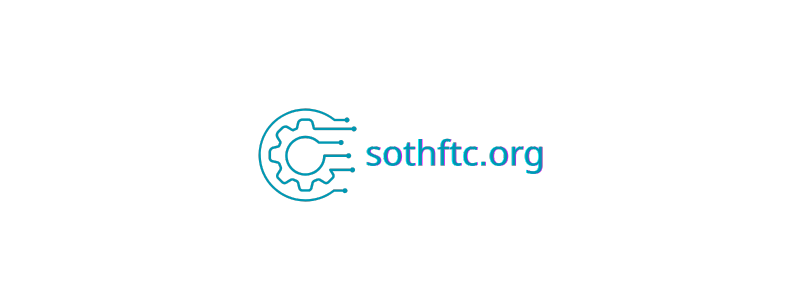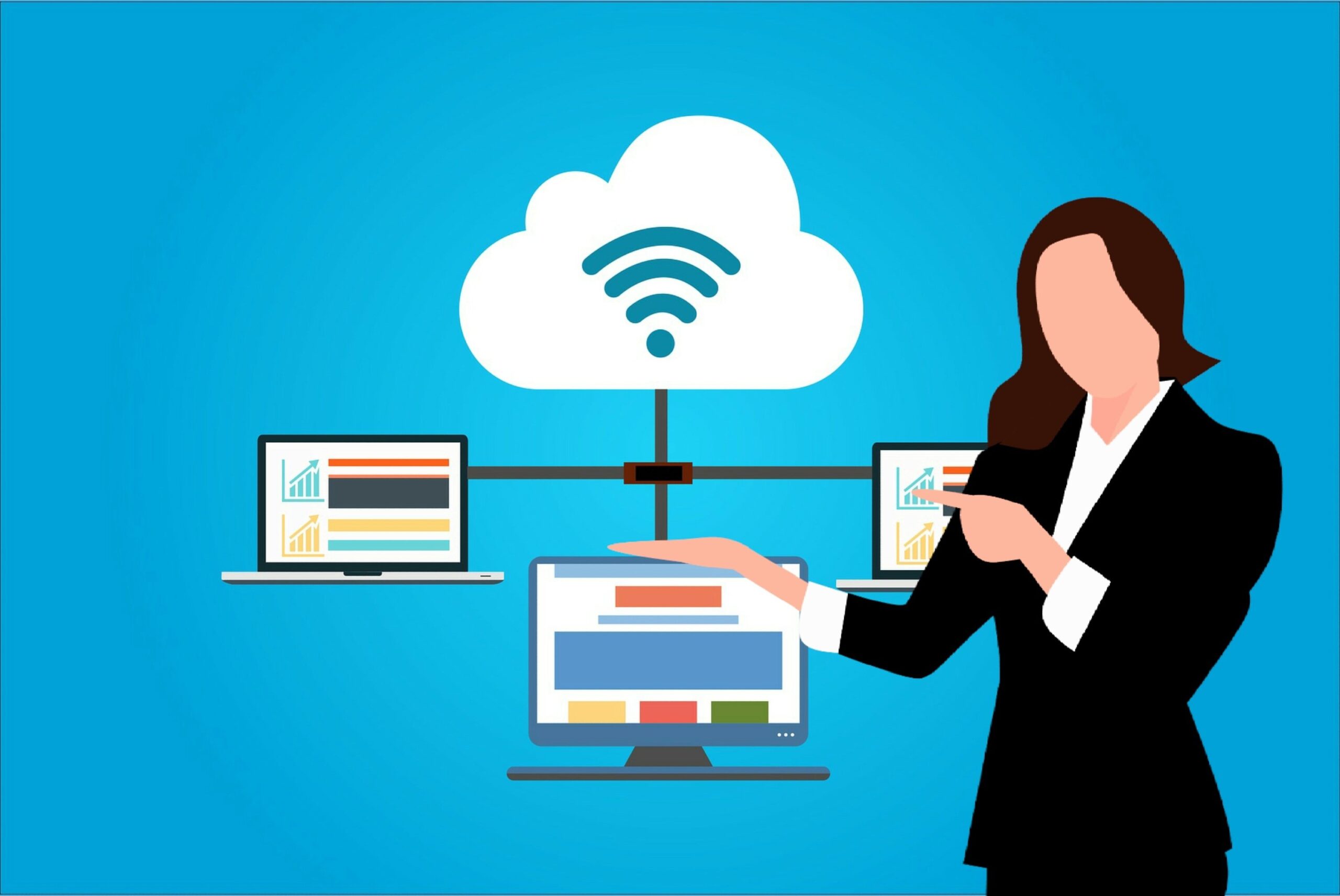What Did Cloud Computing Change? Transforming Business, Collaboration, and Casino Operations
When I think about how technology has transformed our lives cloud computing stands out as a true game-changer. It’s changed the way I work store information and even how I connect with others online. Instead of relying on bulky hardware or worrying about running out of space I can now access my files and tools from anywhere with just an internet connection.
Cloud computing hasn’t just made things more convenient—it’s completely shifted how businesses operate and how people interact with technology every day. From faster collaboration to streamlined workflows the cloud has opened up possibilities I couldn’t have imagined just a decade ago.
The Evolution of Cloud Computing
Cloud computing changed digital infrastructure by transitioning storage and processing from local devices to global networks of remote servers. I noticed the shift began with simple web-based email in the late 1990s, then advanced to scalable platforms supporting enterprise-level applications. Major providers like Amazon Web Services (AWS), Microsoft Azure, and Google Cloud shaped how organizations deploy and maintain resources.
Key Milestones in Cloud Computing
| Year | Milestone Event | Impact |
| 1999 | Salesforce launches CRM | I saw the SaaS model gain mainstream adoption for business functions. |
| 2006 | AWS EC2 public launch | Businesses gained accessible, scalable on-demand compute resources. |
| 2010 | Virtual desktop solutions | Remote work adoption grew as apps became accessible from any location. |
| 2020 | Edge computing expands | Real-time processing improved for sectors like gaming and finance. |
How Cloud Computing Transformed Casino Operations
Casinos adopted cloud technology to enhance operational efficiency and security. I observed digital management of gaming data, secure financial transactions, and real-time analytics transform internal workflows.
Improvements enabled by the cloud:
- Enhanced player data management, with accurate, centralized records
- Real-time fraud detection and compliance monitoring systems
- Scalable hosting for online casino platforms
- Integrated customer experiences through connected mobile and in-house systems
- Efficient resource allocation for tournament operations and loyalty programs
Cloud-based solutions gave casino operators data-driven insights and agility, adapting to changing regulations and player preferences faster than legacy systems.
Transforming Business Operations
Cloud computing redefined business operations by replacing hardware dependence with agile, networked solutions. I can now adapt infrastructure and processes at scale, shaping faster innovation and improved efficiency.
Enhanced Scalability and Flexibility
Cloud computing supports instant scalability for business operations across industries, including finance, healthcare, and gaming. I can rapidly deploy resources to meet demand spikes, such as holiday sales or online tournament surges, without investing in physical infrastructure. Elastic services let me adjust computing power, storage, or bandwidth within minutes, supporting expansions, seasonal upticks, or market changes.
| Cloud Feature | Traditional Method | Cloud-Driven Benefit |
| Server Scaling | Purchase physical units | Add/remove VMs instantly |
| Storage Upgrade | Manual hardware upgrades | Expand cloud storage on-demand |
| Global Reach | Local office setups | Deploy services worldwide |
Shift in IT Cost Structures
Cloud adoption transformed IT expenditure from large capital outlays to predictable monthly or usage-based payments. I avoid upfront purchases for servers and software, instead moving to operating expenses. Pay-as-you-go models optimize budgets and let me allocate spending only on resources in use, freeing capital for core activities.
| Cost Category | Pre-Cloud Model | Cloud Model |
| Hardware Investment | High upfront | Minimal, subscription-based |
| Maintenance | Ongoing, in-house | Managed by provider |
| Software Licensing | Annual contracts | Flexible, per-user fees |
| IT Staffing | Large internal team | Lean teams, external support |
Casino Operations: From On-Premises to Cloud-Driven
Cloud platforms transformed casino operations by eliminating reliance on local servers for gaming data and player management. I can centralize data storage, enable real-time analytics on player activity, and ensure secure, compliant record-keeping. Cloud integration lets me automate fraud monitoring and support hybrid physical-digital gaming floors, adapting to both regulatory change and player demand.
| Casino Function | Legacy Approach | Cloud-Enabled Operation |
| Player Data Storage | On-premises servers | Centralized, encrypted cloud |
| Fraud Detection | Manual review, siloed data | Real-time, cloud-based monitoring |
| Game Updates | Scheduled manual rollout | Instant, remote deployment |
| Compliance Reporting | Periodic manual process | Automated, always up-to-date |
Impact on Data Storage and Security
Cloud computing redefined how I manage, access, and secure digital data. Cloud-based systems replaced local servers, shifting control, efficiency, and risk profiles for businesses and individuals.
Cloud-Based Storage Solutions
Cloud storage delivers centralized access to data from any device connected to the internet. Leading platforms—such as Amazon S3, Google Cloud Storage, and Microsoft Azure—host data centers across multiple regions, guaranteeing low-latency and high availability. I now upload, download, and sync files in real time, benefiting from redundancy protocols that minimize data loss risk. Automatic backup and instant scaling features help organizations adjust storage capacity based on operational demand, minimizing interruptions and costs.
Major Cloud Storage Features Table
| Provider | Redundancy Type | Data Center Regions | Compliance Standards |
| Amazon S3 | Multi-zone replication | 28 | ISO 27001, PCI DSS |
| Google Cloud | Geo-redundant storage | 35 | HIPAA, SOC 2, GDPR |
| Microsoft Azure | Triple replication | 60+ | FedRAMP, ISO 27017 |
New Security Challenges and Opportunities
Cloud computing introduced new security dynamics for data privacy and protection. Sensitive information—when migrated from local infrastructure—faces exposure to network-based threats, including unauthorized access, data breaches, and account hijacking if weak credentials or outdated protocols persist. At the same time, cloud providers deploy advanced safeguards, such as end-to-end encryption, role-based access controls, and continuous vulnerability scanning.
Security teams now leverage these cloud-native features, rapidly responding to breaches and patching vulnerabilities. I notice that contractual Service Level Agreements (SLAs) clarify shared security responsibilities between provider and user, enforcing compliance with regulations like GDPR, PCI DSS, or HIPAA depending on the data type.
Casino Data Storage: Centralization and Security
Casino operators transitioned from isolated on-premises servers to centralized cloud databases, triggering gains in data integrity, regulatory compliance, and anti-fraud efficacy. Central cloud repositories consolidate player information, transaction logs, and gaming analytics, streamlining monitoring and security auditing.
Casino Cloud Data Impact Table
| Aspect | On-Premises Servers | Cloud-Based Storage |
| Data Recovery | Manual, slower | Automated, real-time |
| Regulatory Compliance | Paper-based, fragmented | Digital, unified auditing |
| Fraud Detection | Disconnected tools | Integrated AI monitoring |
| Access Control | Physical restrictions | Granular digital access |
With centralized control, I observe a reduction in data silos and improved detection of irregular gaming activities. Regulatory audits occur faster, and breach response leverages built-in cloud analytics, enhancing player trust and operational resilience.
Changing the Workforce and Collaboration
Cloud computing changes how I work by connecting people, devices, and data across locations. Shifting from traditional offices to distributed teams, cloud services drive efficient communication and real-time interaction.
Remote Work Enablement
Cloud services like Microsoft 365, Google Workspace, and Slack enable my remote teams to access documents, projects, and communication tools from any location with internet connectivity. I control user permissions centrally, keeping workflows secure. VPNs and identity management solutions like Okta add extra protection for distributed users. Businesses in sectors like finance, healthcare, and gaming use cloud-based HR platforms for onboarding, payroll, and compliance, making global hiring and policy adaptation faster.
Table: Top Cloud Platforms for Remote Work
| Platform | Key Feature | Example Use Case |
| Microsoft 365 | Integrated Office Apps | Remote document editing |
| Google Workspace | Real-time Collaboration | Shared spreadsheets |
| Slack | Persistent Messaging | Fast team communications |
| Zoom | Video Conferencing | Global virtual meetings |
| Okta | Identity Management | Secure staff authentication |
Real-Time Collaboration Tools
Cloud-powered apps support real-time teamwork. I edit, comment, and manage shared files instantly through platforms like Trello, Asana, and Microsoft Teams. Project tracking tools update stakeholders with live progress, supporting fast decision-making. Version control is simplified—Google Docs and Dropbox Business save every edit with automatic backups. Analytics dashboards allow multiple team members to view and act on business data without delays.
Table: Common Real-Time Collaboration Tools
| Tool | Collaboration Feature | Typical Application |
| Trello | Live Boards | Task workflow tracking |
| Asana | Shared Projects | Phase-by-phase planning |
| Microsoft Teams | Video/Chat Meetings | Immediate discussions |
| Google Docs | Live Editing | Simultaneous input |
| Dropbox Business | Instant Sync | Centralized file store |
Casino Staff and Vendor Collaboration
Casinos rely on cloud-based scheduling, compliance, and customer management to coordinate internal teams and external vendors efficiently. Staff manage shifts, payroll, and training via platforms like ADP and Workday. Cloud ERPs streamline contracts, inventory, and dispute resolution between casinos and their partners, reducing processing time from days to hours. Security systems in the cloud let surveillance staff, regulators, and IT teams review real-time incidents together, even when working remotely.
Table: Cloud Usage in Casino Workforce Collaboration
| Function | Cloud Tool/Platform | Improvement Example |
| Staff Scheduling | ADP | Automated shift assignments |
| Vendor Management | SAP/Oracle ERP | Live contract processing |
| Surveillance | Cloud Video | Shared incident reviews |
| Compliance | Workday | Real-time audit documentation |
Influencing Software Development and Delivery
Cloud computing transformed how I approach software creation and distribution. My processes shifted from hardware-centric models to scalable, service-based architectures that offer agility and innovation velocity.
Rise of SaaS, PaaS, and IaaS
Adoption of SaaS (Software as a Service), PaaS (Platform as a Service), and IaaS (Infrastructure as a Service) models redefined software development. I access pre-built platforms and infrastructure instantly, removing the burden of managing servers or middleware manually.
- SaaS enables me to deliver applications, like Salesforce or Microsoft 365, directly through browsers, eliminating installation complexities and version conflicts.
- PaaS platforms, such as Google App Engine or Heroku, provide built-in runtime environments, letting me focus on code without server configuration.
- IaaS, with examples like AWS EC2 or Azure Virtual Machines, supplies scalable computing resources as needed, supporting dynamic workloads.
Cloud Service Model Comparison
| Model | Application Example | Developer Focus | Scalability |
| SaaS | Salesforce, Slack | Usage/Integration | High |
| PaaS | Heroku, Google App Engine | Application Code | High |
| IaaS | AWS EC2, Azure VM | Infrastructure & OS | Very High |
Accelerated Deployment and Updates
Release cycles compressed as cloud platforms let me push updates instantly to users. Automation streamlines testing, integration, and delivery, using CI/CD tools such as Jenkins or GitHub Actions. I roll out software enhancements, security patches, and new features simultaneously to all users, rather than relying on slow client-side updates.
- Automated deployment pipelines enable frequent releases for platforms like mobile games or casino management systems.
- Real-time monitoring and rollbacks minimize disruption in case of deployment issues.
Deployment Speed Gains
| Traditional Model | Cloud-Enabled Model | Relative Deployment Time |
| Manual, monthly | Automated, weekly or daily | 5x–30x faster |
Casino Software Innovation Enabled by Cloud Platforms
Casino gaming platforms now innovate faster using cloud-enabled development and delivery models. Operators implement new games, regulatory modules, and customer features within weeks, not months.
- Cloud hosting scales to handle game surges seen in online poker tournaments or large slot events.
- Real-time analytics platforms, like AWS QuickSight or Google BigQuery, power instant player profiling and fraud detection.
- Updates deploy simultaneously across properties or partner sites, maintaining compliance and customer experience.
| Functionality | Pre-Cloud Timeline | Cloud Timeline | Example Platform |
| New Game Rollout | 3–12 months | 2–6 weeks | Microgaming Cloud |
| Customer Feature Update | Quarterly | Bi-weekly | Playtech Omni-Channel |
| Compliance Patch Deployment | Manual, site-by-site | Global, instant | EveryMatrix CasinoEngine |
Broader Societal and Industry Changes
Cloud computing has shifted the foundation of how technology connects people, organizations, and industries. Its impact reaches beyond individual companies, driving widespread change in access, innovation, and sector-specific operations.
Democratization of Technology Access
Cloud platforms have broadened technology access for individuals and businesses regardless of size or physical location. I see small startups launching global-scale applications using cloud tools that previously required major capital investment. Nonprofits, educators, and local governments use affordable platforms like Microsoft Azure, Google Cloud, and Amazon Web Services (AWS) to access high-performance computing and storage. Users in remote areas now connect with resources once restricted to major tech hubs. These advances close the digital divide, making equal opportunities for digital inclusion possible only with the scalability and reach that cloud infrastructure offers.
| Cloud Provider | Key Accessibility Features | Example Use Case |
| AWS | Free tiers, global data centers | Rural telehealth systems |
| Microsoft Azure | Student & nonprofit grants | Educational app development |
| Google Cloud | Flexible billing, language localization | Civic open data portals |
Driving Innovation Across Sectors
Cloud computing drives rapid innovation in industries like retail, healthcare, finance, and entertainment. Sector leaders deploy AI, machine learning, and data analytics without managing physical infrastructure. Retailers use cloud analytics to optimize supply chains. Healthcare platforms store electronic medical records and power telemedicine apps. Financial institutions launch secure fintech apps and automate fraud detection. Media companies deliver content globally with real-time collaboration and scalable distribution networks. This acceleration reduces time-to-market for everything from mobile apps to AI-powered diagnostics.
Enhanced Digital Transformation in Casino Operations
Casinos experience digital transformation through migration to cloud-based platforms. I note that operators integrate multi-channel player tracking, fraud prevention, and real-time analytics using scalable cloud tools. Regulations and security requirements become easier to meet thanks to centralized data management and automated compliance reporting. These adjustments create agile environments that adapt to regulatory changes or new customer trends. As a result, casinos deploy new features quickly and optimize customer engagement across both in-person and digital experiences.
| Casino Cloud Use Case | Previous Method | Current Cloud-Driven Approach |
| Player Analytics | Local databases | Real-time cloud dashboards |
| Regulatory Compliance | Paper/manual auditing | Automated cloud audit logs |
| Customer Personalization | Isolated marketing lists | Centralized, AI-powered promotions |
| Fraud Detection | Reactive local alerts | Proactive, cloud-based monitoring |
Conclusion
Cloud computing has completely redefined how I approach technology in business and daily life. Its influence stretches far beyond simple convenience—it’s a driving force behind innovation, agility, and smarter decision-making.
As I look at the pace of change, it’s clear that embracing the cloud isn’t just an option anymore. It’s become essential for staying competitive and resilient in a world that’s always connected and always evolving.
Frequently Asked Questions
What is cloud computing?
Cloud computing refers to delivering computing services like storage, processing, and software over the internet instead of relying on local servers or personal devices.
How has cloud computing evolved over time?
Cloud computing started with simple online services like web-based email and has evolved into complex platforms supporting enterprise applications, scalable resources, and real-time collaboration.
How does cloud computing benefit casino operations?
Cloud computing streamlines casino operations by providing secure digital data management, real-time analytics, enhanced fraud detection, and scalable hosting, leading to better efficiency and customer experience.
What are the main advantages of cloud computing for businesses?
Businesses benefit from increased scalability, flexibility, cost savings, faster innovation, and the ability to access resources and collaborate from anywhere with an internet connection.
How does cloud computing improve data security?
Cloud platforms enhance data security through centralized management, end-to-end encryption, regular backups, and access controls, while also reducing the risk associated with local server failures.
Are there new security risks with cloud computing?
Yes, cloud computing introduces network-based threats, making strong security measures like encryption, multi-factor authentication, and role-based access controls essential.
How has cloud computing changed software development?
Cloud computing has led to new software models like SaaS, PaaS, and IaaS, enabling instant access to platforms and infrastructure so developers can focus on building and deploying code quickly.
What impact does cloud computing have on workplace collaboration?
Cloud computing enables distributed teams to work together in real time using tools like Microsoft 365, Google Workspace, and collaboration apps such as Slack and Teams, improving productivity.
How does cloud computing support rapid business innovation?
Cloud platforms enable businesses to deploy and update software quickly, run advanced analytics, and scale resources instantly, helping organizations stay competitive and responsive to change.
How does cloud computing democratize technology access?
By minimizing the need for upfront infrastructure investment, cloud computing lets small businesses and individuals access powerful tools and global-scale platforms, narrowing the digital divide.
What role does cloud computing play in regulatory compliance for casinos?
Cloud-based systems help casinos centralize their data, streamline regulatory audits, improve supervision, and maintain compliance with changing regulations more efficiently.




